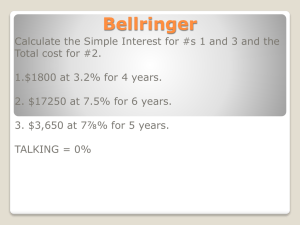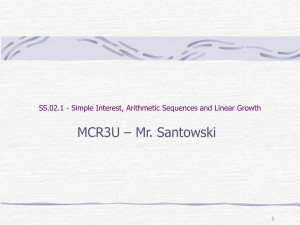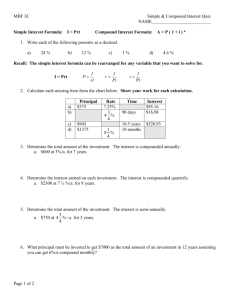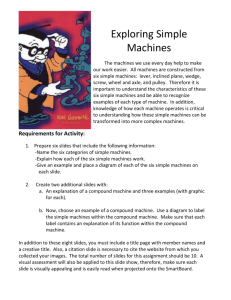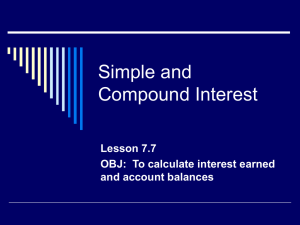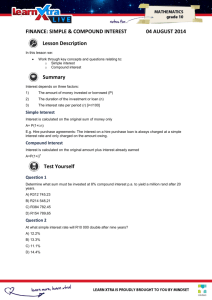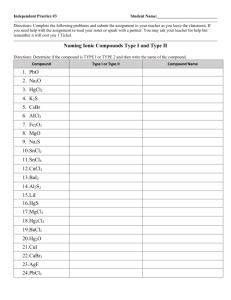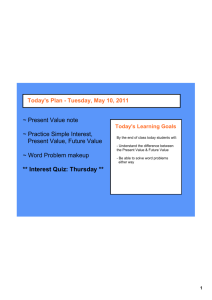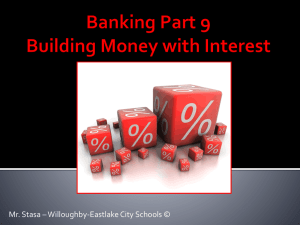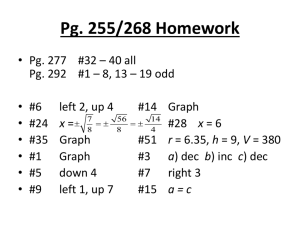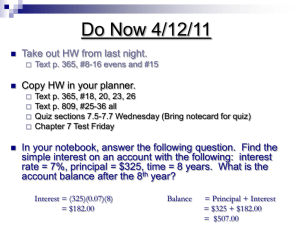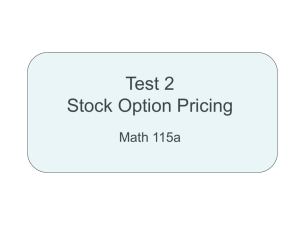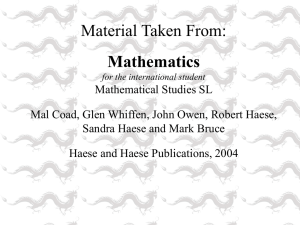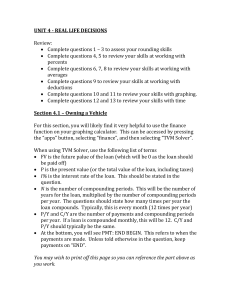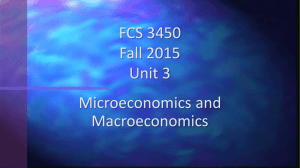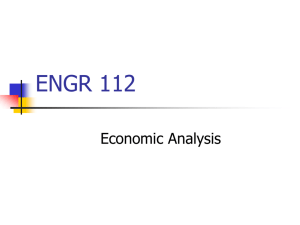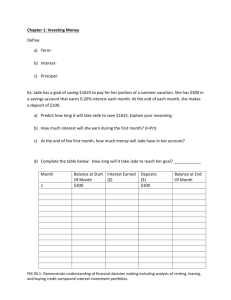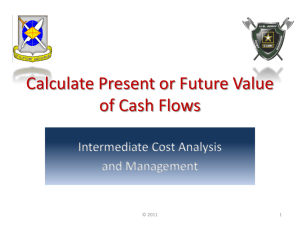Compound Interest Notes
advertisement
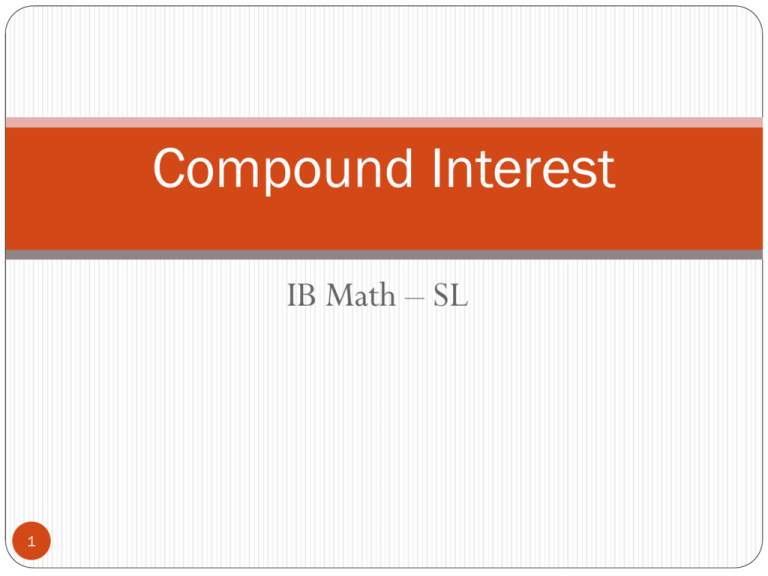
Compound Interest IB Math – SL 1 Financial Applications: Definitions Simple interest means that only the principal invested earns interest Principal means the original amount invested or borrowed Rate refers to the interest rate being paid as a percent usually per year (per annum) The amount of the investment refers to the total of the principal and the interest being paid 2 Financial Applications: Formula for Simple Interest I = Prt where I is the interest earned, P is the principal invested, r is the interest rate being earned (usually per annum), and t is the length of time that the principal earns interest (usually in years) A = P + I where A is the total amount of the investment which is the sum of the original principal and the interest earned upon combining A = P(1 + rt) = P + Prt 3 Financial Applications: Examples with Simple Interest 4 I= P=$2500 r=3.75%/a T = 3a A= I= P=$1200 r=4.25%/a T = 6m A= I= P=$3000 r=3%/a T= A = $3120 I= P=$2000 R= T = 1.5a A = $2120 I= P= r=4%/a T = 2a A = $4050 I= P= r=4.25%/a T = 175d A = $1200 Financial Applications: Arithmetic Sequences If you invest $1000 for 10 years which earns 5% pa simple interest: (I) Determine the value of the total investment at the end of each year for the next 10 years. (ii) List the terms and determine the general term. What type of sequence is this? (iii) Graph the sequence with an appropriate choice of axis. (iv) Explain why simple interest is an example of “linear growth” 5 (D) Financial Applications: Arithmetic Sequences If you list the investment amount yearly, you get the sequence (1000?), 1050, 1100, 1150, 1200,...1500 which we can write as: un = a + (n - 1)d or un = 1050 + (n - 1)50 or un = 50n + 1000 6 Financial Applications: Compound Interest Compound Interest means that you earn interest on the original investment plus any previously accrued interest i.e. you interest on your principal and also on your interest Compounding period refers to the interval of time that interest is accrued prior to being added into the principal i.e. your interest is added into your principal at the end of the compounding period ex. if you invest $4000 at 10% pa compounded annually, it means that interest earned is calculated every year and added into the principal at the end of every year. 7 Financial Applications: Compound Interest Compounding Periods: Semi-annual => interest determined and added every 6 months, twice a year Quarterly => interest determined and added every 3 months, 4 times a year Monthly => interest determined and added every month, 12 times a year Daily => interest determined and added every day, 365 times a year 8 (E) Financial Applications: Compound Interest the compound interest formula is: A = P(1 + i)n A = total amount of investment P = the principle investment i = interest rate per conversion period n = number of conversion periods Determine the total value of your investment if the conditions of your investment are: P=$2000 @ 3% quarterly for 2a P=$1500 @ 4% semi-annually for 4 a P=$500 @ 1% daily for 275 d P=$1250 @ 2.4% monthly for 1½ a 9 3/10/2016 Financial Applications: Compound Interest Compound Interest as a Sequence If you invest $2000 for 6 years at 8%/a compounded annually, (i) Determine the value of the total investment at the end of each year for the next 10 years. (ii) List the terms and determine the general term (iii) Graph the sequence with an appropriate choice of axis. 10 3/10/2016

